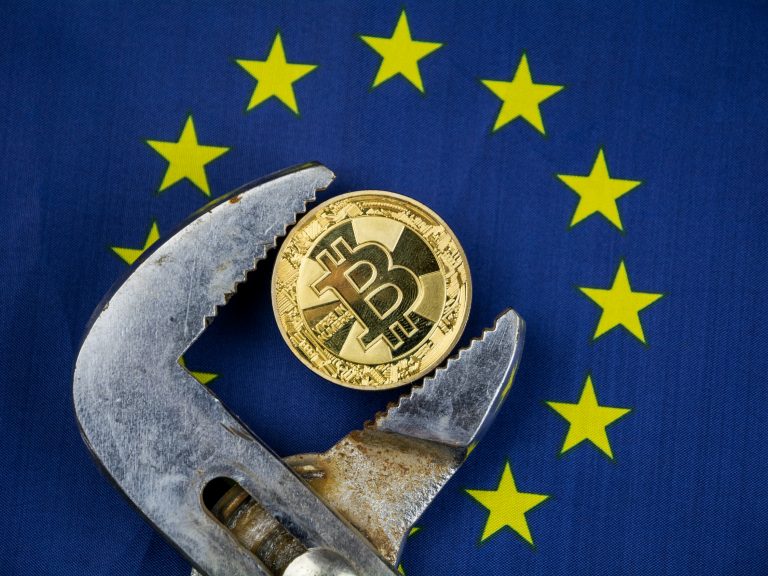2023-7-3 13:21 |
While experiencing strong growth in its crypto industry, Portuguese natives display a relatively cautious approach to digital assets compared to the global average, according to The Portugal News, a local Portuguese media outlet.
It is estimated that 268,000 individuals in Portugal are actively investing in digital currencies, making up about 2.6% of the country’s population, citing data from Triple-A, a licensed crypto payment gateway. This level of adoption, although indicative of progress, is roughly half the global average, suggesting a careful attitude among the public towards crypto investments.
The figure is particularly notable when compared to countries such as the United Arab Emirates, India, China, and the United States, which have a significant percentage of their populations as digital asset investors.
Crypto investment in Portugal has seen steady growth due to increased awareness, technological advancements, low crypto taxes, the relocation of web3 companies, and the growing acceptance of crypto as a valid form of investment. Despite these encouraging factors, the relatively low number of crypto investors in the country “suggests an element of caution, or inaccessibility, among the Portuguese population, which would need to be addressed for investment figures to rise,” as per The Portugal News.
Portugal’s cautious crypto optimismPortugal has remained progressive within the complex domain of crypto taxation, establishing new tax rules for crypto assets, implemented on Jan. 1, 2023, after much deliberation within the government. These rules clarify and present the country’s unique characteristics compared to the broader global crypto tax landscape.
For tax purposes, a crypto asset is “any digital representation of value or rights that can be transferred or stored electronically through distributed ledger technology.” Notably, unique and non-fungible crypto assets are excluded from this definition and, thus, are not considered crypto assets for tax purposes.
The rules present a somewhat liberal approach towards income taxation from professional or business activities related to crypto assets. Only 15% of such income will be taxed, although mining activities stand as an exception, with a high % tax rate of 95%.
Furthermore, the tax laws offer an advantage to long-term crypto holders; capital gains from the sale of crypto assets held for 365 days or more carry no tax, regardless of when they were acquired. In addition, receiving crypto assets in exchange for selling other crypto assets will not trigger any tax, a significant move expected to encourage crypto-to-crypto transactions.
Global crypto adoptionPortugal has seen an increase of 40% in the number of foreign residents over the past ten years, with many attributing parts of the growth to the country’s low crypto taxes. Nevertheless, while the steady growth of Portugal’s crypto industry indicates a promising future, there is still significant potential for further development and broader adoption.
However, in contrast to Portugal, the United Arab Emirates (UAE) tops the table in crypto adoption, with 27.67% of its population owning crypto assets. Other notable countries include Vietnam, Saudi Arabia, Singapore, Iran, the United States, Ukraine, and Venezuela, each with unique dynamics driving crypto adoption.
Country Population Ownership Ownership Percentage United Arab Emirates 9,516,871 2,633,001 27.67% Vietnam 98,858,950 20,301,468 20.54% Saudi Arabia 36,947,025 6,476,813 17.53% Singapore 6,014,723 837,851 13.93% Iran 89,172,767 12,000,000 13.46% United States 339,996,563 44,959,854 13.22% Philippines 117,337,368 15,279,906 13.02% Ukraine 36,744,634 3,784,697 10.30% Venezuela 28,838,499 2,970,365 10.30%Data via Triple-A
Reflecting on the transformational impact of crypto in Portugal, Carlos Prada, the CEO and founder of Masterblox, observed,
“The creation of cryptocurrencies became the black swan event that shook the country to its core and created a better future for its young people.”
Prada noted that blockchain technology played a significant role in combating unemployment in the country and fostering a sense of ambition among the youth. He said, “The possibilities it opened helped Portuguese entrepreneurs realize they could create a parallel global economy free of government interference.”
However, the adoption rate of crypto in Portugal may indicate that those benefitting most from the progressive stance on crypto may not be the general population, with local media echoing this concern.
While the crypto-friendly environment may foster the growth of crypto-related startups and be advantageous for the tech-savvy and the educated, most of the populace remains on the sidelines, perhaps due to a lack of awareness and understanding of the risks and rewards associated with digital assets.
The continued growth of Portugal’s crypto industry shows a promising future, but there is still much ground to cover. The benefits of a progressive tax environment and a burgeoning tech industry may need to be extended to the broader population if Portugal is to embrace the potential of the digital asset revolution fully.
The post Crypto adoption in Portugal below global average, just 2.6% hold digital assets appeared first on CryptoSlate.
origin »Bitcoin price in Telegram @btc_price_every_hour
Global Currency Reserve (GCR) на Currencies.ru
|
|





















